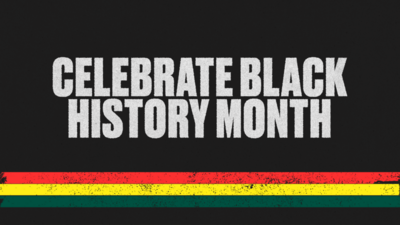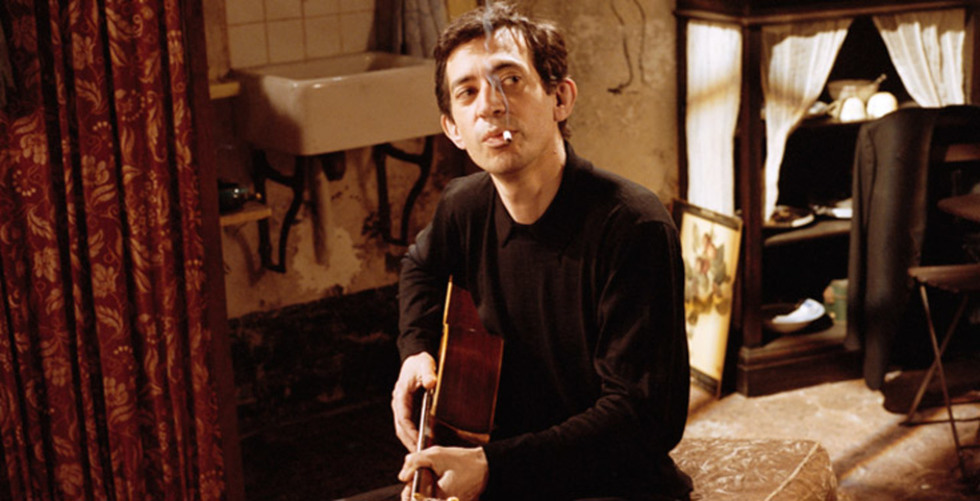
BY ZACHARY WIGON |
Gainsbourg: The Proto-Hipster
Graphic novelist-turned-filmmaker Joann Sfar discusses switching mediums for his debut feature.


Eric Elmosnino / courtesy Music Box Films
Few French pop-culture icons possess the complexity and ageless cool of Serge Gainsbourg. The Russian Jew, born Lucien Ginsburg in Paris in 1928, manages to remain relevant even today; when one conjures up a sense of the metropolitan hipster cool that has dominated cities like New York and LA for the past decade, the chanteur easily comes to mind as one of the vibe’s forebears. The fact that his daughter Charlotte Gainsbourg, an accomplished actress (she reunites with Antichrist helmer Lars Von Trier in the forthcoming Melancholia), has inherited the mystique certainly helps to no small degree.
So perhaps it was inevitable that Gainsbourg’s life would be tackled in biopic form by the French film industry. The tackling, however, is as unconventional and loose as the man himself, as evidenced upon viewing Gainsbourg: A Heroic Life, Joann Sfar’s debut feature. An accomplished graphic novelist, Sfar was enlisted to make the film about Gainsbourg, and in fact wrote a graphic novel about the man’s life while preparing his film, which has gone on to be a huge success in France (as well as the film itself, which won two Cesars—France’s version of the Oscars).

Laetitia Casta and Eric Elmosnino / courtesy Music Box Films
Featuring walking and talking apparitions that converse with Gainsbourg—abstract caricatures of his inner state—the film’s tone is decidedly surreal. The hazy, drunken atmosphere conveyed in Gainsbourg’s music only adds to that sense, as does the stellar performance by Eric Elmosnino (Best Actor, 2010 Tribeca Film Festival) as the titular star. The beautiful women who populated his life also play a big role: Brigitte Bardot (Laetitia Casta), Jane Birkin (Lucy Gordon), Juliette Gréco (Anna Mouglalis), and Bambou (Mylène Jampanoï), to name a few.
Far from a conventional biopic, Gainsbourg: A Heroic Life relies on a certain stylistic lyricism to paint its portrait of the subject. We recently caught up with Sfar, and we talked about the film and his move from comics to movies.

Joann Sfar / courtesy Music Box Films
Tribeca: I read that the film was based on a graphic novel that you did. At what point did you decide to adapt your graphic novel into a film?
Joann Sfar: It’s not exactly that. I decided to make a film about Serge Gainsbourg, and I wrote the movie through comics. But there was no book before the movie—I did the comic in the writing process.
Tribeca: I see. So what was it about the medium of comics that made you decide to write the film in that format?
Joann Sfar: Well, I’ve published about 150 comic books, and I’ve never written a movie script. I’m familiar with seeing movies, but not writing them! I had no clue how to do it.
Tribeca: There have been so many graphic novels adapted into movies in the past decade, and it’s interesting insofar as it illuminates how much the mediums share.
Joann Sfar: Well yes, they are visual mediums and they share sequential and narrative arcs, but there are many differences. I’m not sure the comic was that useful; it’s quite a different language. But people at studios seem to be put at ease when a writer can provide pictures, because it enables them to see what the film might look like.

Anna Mouglalis and Eric Elmosnino / courtesy Music Box Films
Tribeca: Are there differences in terms of how you work in the mediums, or is there a high degree of connection there?
Joann Sfar: The montage is different, but for composition, I feel like composition hasn’t changed since the Greeks, how they invented the 2-D image. What was interesting was my constant fights with my DP—very friendly fights—because he only loves photography and real light, and I always refer to painting and watercolors. This way of him pushing me to reality and me pushing him to painting, it brings in a good conflict in terms of creating images.
Tribeca: What’s interesting about the comic-book medium is that the audience does so much of the work, since you can only show so many images.
Joann Sfar: Right. I was interested in, for this movie, providing very few shots. The movie is two hours and ten minutes, and there are only 700 shots. I wanted it to be almost a bit Japanese in that sense. Maybe because I was kind of self-indulgent with my images, I don’t know, but I couldn’t hide the fact that I was fascinated with this medium that was brand-new to me. I’m a huge fan of old-fashioned cinema, and I had to start with what I know: the horror movies of Terence Fisher or Roger Corman, or the musicals, like An American In Paris. The movies I really loved when I was a student—and I won’t pretend that I know much about contemporary movies, because I don’t. I won’t pretend I’m anything other than a comic-book cartoonist.

Lucy Gordon and Eric Elmosnino / courtesy Music Box Films
Tribeca: That brings me to ask what led you to deciding to make a film for the first time.
Joann Sfar: They asked me. They wanted to adapt my comic books, and I’m not sure they wanted to do that for good reasons. But I wanted to do something about music, because it was obvious to me that music would provide a beat that would help me understand this new medium. I’d been thinking about Sam Raimi: when he wanted to do a western some years ago, he wanted to do it with seven different gun duels in the story, each of them in a different way, and I wanted to do a movie with a macho guy who’s with six or seven girls, each of them in a different way, as a way to help me learn how to use a camera. I spent the whole making of the movie telling the producer, “You’re very nice for paying for my education.”
Tribeca: Were there certain films that you watched for that education? You mentioned An American In Paris—were you going for a kind of old Hollywood musical vibe?
Joann Sfar: Definitely, definitely. The whole film was shot on location, but we did our best to pretend it was production design. We were shooting on the banks of the Seine with enormous lights so it would look like production design. I went back to the movies that moved me as a teenager. I tried not to hide the fact that this was brand new to me, to hide the fact that I was in love with all my actresses, and I tried to use that love to make pictures. I feel if you are fascinated, that can be good.

Eric Elmosnino / courtesy Music Box Films
Tribeca: The film has a lot of surreal doubles of Serge that follow him around—cartoonish figures. How did you conceive of those?
Joann Sfar: Those were in the movie even before Serge Gainsbourg. My whole thing is, I love puppets, I love monsters, and I was lucky enough to meet the crew of Guillermo Del Toro, and I was lucky enough to work with them. I knew I’d be able to come up with an explanation for why they were in the story, but the truth is, I love monsters.
Tribeca: There’s something interesting about having a quote-unquote monster who’s just a side of an ordinary person, as if every person has a kind of monstrous side to them, waiting in the shadows.
Joann Sfar: In the movie, if the guy has a bad imaginary friend, you have to embody this friend. It was interesting to put Eric Elmosnino with puppets from Prague dark theater. I felt like they gave a lot of energy to each other.
Tribeca: Were you a fan of Serge Gainsbourg before you began working on the film?
Joann Sfar: Oh yes, I’ve been a huge fan since my childhood. You know, he was the only French singer with an attitude when I was a kid. I come from a rather observant and boring Jewish family, and here was this Russian Jew who dated Brigitte Bardot and Jane Birkin, so he made me think it was a good idea to become a grown-up.

Laetitia Casta and Eric Elmosnino / courtesy Music Box Films
Tribeca: Can you elaborate on that a bit more? And also, when you began to tackle this, which angle did you want to take in terms of entering the story of Gainsbourg’s life?
Joann Sfar: What I was interested in was his sadness. And also the fact that he mixed up the relationship between his family and his audience. What you should expect from your wife, he expected from his audience, and this is typical of artists who get confused. I was attracted to that. I was also attracted to the fact that he pretends to be a French lover, but he’s really a Russian Jew. He would love to be Don Draper, but he’s not. And the fact of him being so macho, and yet so childish, it was very interesting for a character. And also the fact of having him aging was interesting for me. And of course I wanted to shoot Brigitte Bardot, and this was a way to have Brigitte Bardot in my movie!
As far as his influence on me personally—he made the country change a lot. When he tried to sing La Marseillaise when I was a child, it was a big scandal, because this old Jewish man was taking the French national anthem and singing it with black singers. And then, twenty years after, I make my film and everyone’s delighted, families go to it and no one finds it shocking. (I was kind of disappointed to realize my film did not shock anyone.) For French people today, it’s very nice that he’s been putting reggae on Le Marseillaise. The French population has changed. They consider him the most valuable French singer, he’s deeply loved by the French population, so I don’t know—in a way, I think he’s done a lot of good for the perception of black people and Jewish people in France. But this is not what he set out to do—he set out to be provocative.
Gainsbourg: A Heroic Life opens Wednesday, August 31, at Film Forum. Find tickets. The film will roll out to selected cities over the next month.
Watch the trailer:
